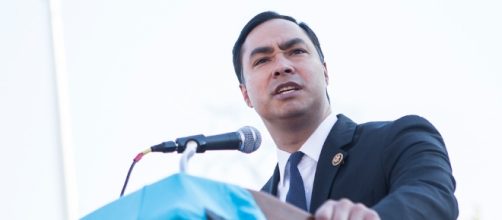Rep. Joaquin Castro, D-Texas was considered a rising Hispanic Democratic star in the Lone Star State and represented a crucial part of the hope of some on the left to turn the state from red to blue. Castro was touted by many as the best candidate to take away Sen. Ted Cruz’s seat in the 2018 midterms. However, according to the Washington Post, Castro has told donors, and supporters that he has decided to pass on a Senate run for now and concentrate on running for reelection for his House seat. As of right now, Rep Beto O’Rourke, D-Texas is the only announced candidate to run against Cruz next year.
Cruz, who ran a failed bid for the presidency in 2016, has lost some of his popularity in Texas, though his supporters dispute polls that show him in danger of losing his seat. Nevertheless, Cruz is busily raising money and doing tours of the Lone Star State to shore up his support and make certain that no possible opponent has a chance of unseating him.
Cruz remains a national figure, taking a leadership role in issues like the fight to repeal Obamacare and end illegal immigration. He recently introduced a bill to seize the assets of convicted drug kingpins and use them to pay for border security that has gained some popularity. Cruz has started a series of hearings to reform NASA space exploration and commercial space programs that will be of some benefit to Texas.
Despite some wishful thinking on the part of some in the media and in the Democratic Party, Cruz remains the odds-on favorite to retain his Senate seat. Castro, by declining to run against him, seems to have come to realize this fact. Texas remains a solid red state and looks to remain so for the foreseeable future. O’Rourke, an obscure congressman and a former punk rocker, does not seem to be a formidable threat.
Cruz may have been denied an early rise into the Oval Office. However, that means that he has a longer than expected Senate career ahead of him. That fact will give him the opportunity to rack up some legislative victories, such as a 2015 commercial space bill that has received some praise for its provisions governing lunar and asteroid mining.
Presuming that Donald Trump decides to run for a second term and wins, the presidency will be open in 2024. Cruz will be a relatively young man in his mid-50s. Also, because of the so-called Lyndon Law, he will be able to run for the presidency and his Senate seat for a third term at the same time.

